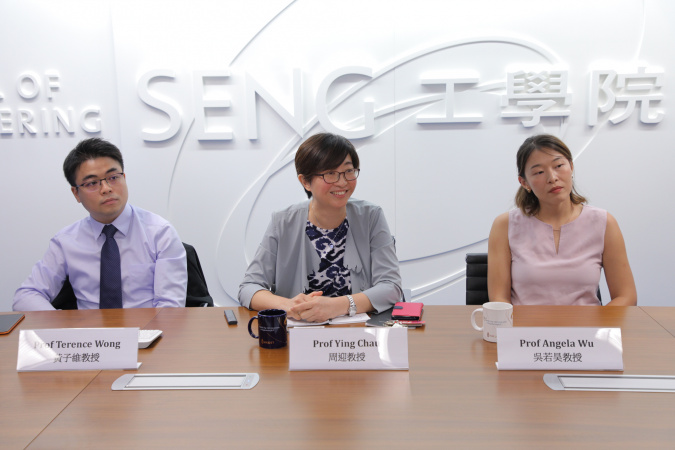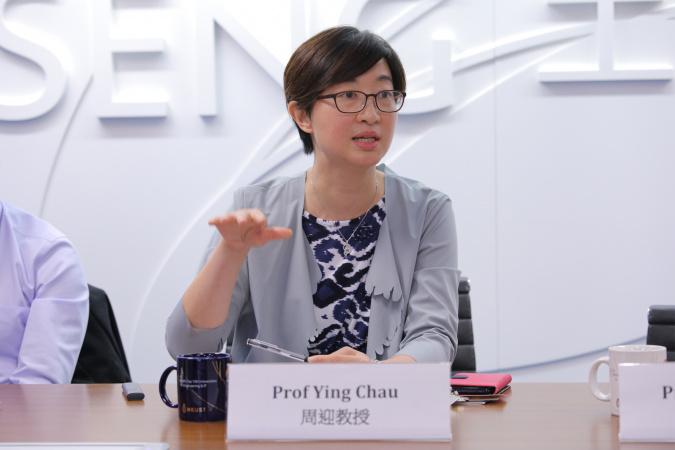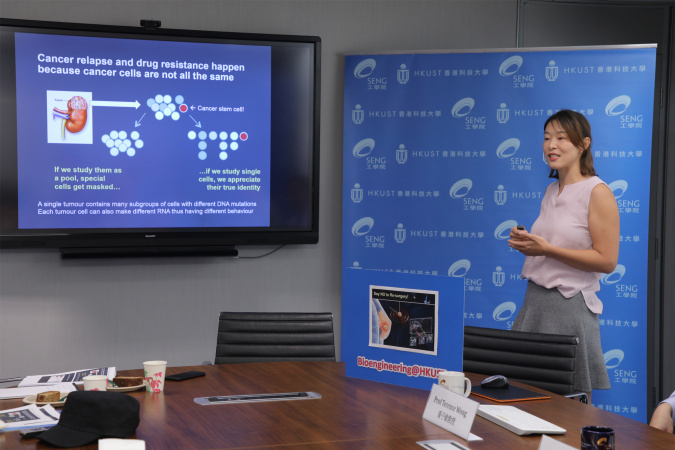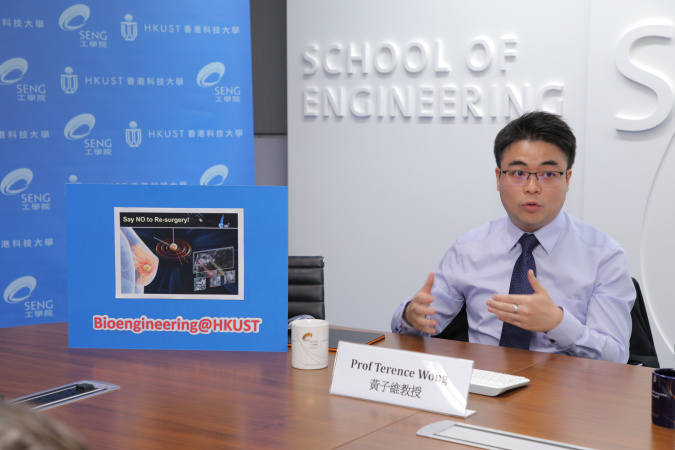HKUST’s New Undergraduate Program in Bioengineering Exposes Students to an Exciting World of Discovery Using Diverse Cutting-Edge Technologies
The School of Engineering of the Hong Kong University of Science and Technology (HKUST) is launching a new undergraduate program in Bioengineering that offers students the opportunity to conduct research in elite overseas universities, and at the same time nurtures leaders in biomedical technology and big data in support of the Hong Kong government’s focused effort to spearhead the development of these fields.
Prof Ying CHAU, Associate Professor and Undergraduate Program Coordinator in the Department of Chemical and Biological Engineering, said, “The Bioengineering Program takes a molecular-level perspective to tackle healthcare issues. For instance, the curriculum contains modules on biomaterials design, pharmaceutical engineering, and genome analysis.”
The Bioengineering Program is taught by a number of rising stars in bioengineering research who are at the forefront of innovation.
Prof Angela WU, Assistant Professor in the Department of Chemical and Biological Engineering, is designing microfluidic devices that can capture and manipulate cells for different purposes including single-cell genomic analysis. While each microfluidic device can be used to investigate cells from a variety of organisms including bacteria, animals, and plants, one of Prof Wu’s main research focuses is studying tumor initiation in human beings, with the goal of understanding and preventing cancer.
Prof Terence WONG, Assistant Professor in the same Department, is developing a novel microscope that can determine whether any cancer cells remain in a cancer patient after an initial resection within minutes. This is a tremendous improvement on the current pathological procedures, which typically take as much as a week, resulting in some cases in the need of performing a second surgery to remove the remaining cancer cells.
Both Prof Wu and Prof Wong are making a significant difference to human health.
The Bioengineering Program will be launched in the Fall Semester in 2018. Students have to register for the HKUST Engineering program (JUPAS catalog no: JS5200) within the JUPAS program choices modification period (July 12-14) in order to get into the major.
Prof Ying Chau said, “We take tremendous pride in offering this Bioengineering Program, as we are putting students on the cutting edge of engineering research, and preparing them for significant contributions to mankind.”
For program details, please visit https://cbe.hkust.edu.hk/academic/bachelor-of-engineering-in-bioengineering.





